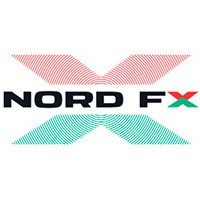Stock markets cater to a wide range of investing styles. Both traders and long-term investors have access to various types of stocks, based on their investing horizon or risk appetite. So, what are the different types of stocks available? And how can investors best discern them when investing or trading? It’s important to establish why there are so many types of stocks that exist in the stock market. Nearly all stocks can be defined as either “small cap”, “mid cap”, or “large cap”.
Generally, small cap stocks are those that have a market capitalisation that’s below US$2 billion. Meanwhile, mid cap stocks are those with market capitalisation of between US$2 billion and US$10 billion.
Large cap stocks are those with a market capitalisation above US$10 billion. Finally, there are also what’s known as “mega cap stocks”; these are companies with market capitalisations in the hundreds of billions of dollars. Those definitions break stocks down by size. Beyond that, there are also other defining features. Here are five of them.
Growth stocks
Growth stocks are popular among both traders and long-term investors. Companies in this category are seeing their sales (revenue) increase very quickly from year to year. They also tend to be “expensive” on traditional valuation metrics, such as price-to-earnings (PE) and price-to-sales (PS) ratios.
Many growth stocks can be found in the technology sector. While the risk level associated with these stocks is higher, the potential returns are potentially better as well.
That’s because these types of stocks tend to be more volatile. After earnings – or any other major news announcements – the share prices of growth stocks can go up or down very sharply. It’s important to remember that growth stocks are valued on the future potential of their cash flows. In that sense, many growth stocks can be loss-making companies that have little to no profits.
Value stocks
Value stocks are broadly defined as profitable but unloved companies. They tend to be more mature companies that generate cash flows but are in sectors that are not popular with investors. That could be down to a number of reasons, including these companies being threatened by structural change within their industries.
As a result of all this, value stocks trade at “cheap” valuations a lot of the time. However, in certain cases stocks can be classed as value because the market has mispriced the business’s true long-term potential.
One of the biggest proponents of value stocks is investing legend Warren Buffett, who has made his career by investing in reliable and mature cash-generative businesses.
Penny stocks
Penny stocks are listed companies that have tiny market capitalisations (generally below US$100 million). Their share prices are also low, with most penny stocks trading below US$1 per share. These companies are characterised by speculative – or maybe even non-existent – business models. While their share prices can spike, they are also popular vehicles for nefarious characters to carry out fraud.
That’s because the trading volume and public float of shares are both extremely low. As a result, these types of stocks are vulnerable to market manipulation schemes.
Blue Chip Stocks
In a similar vein to value stocks, blue chip stocks are large, mature and profitable businesses. They have very dependable business models and are seen as industry leaders. The term “blue chip” itself relates to poker where players bet in blue, red and white chips. Blue chips are the highest value chips.
As a result, many of these blue chip companies are viewed as relatively “safe” stocks when compared to other stocks in the overall market.
These types of stocks have a history of delivering strong returns over the long term and have reliable cash flows. With this, there comes an ability for blue chip stocks to return cash to shareholders by paying a dividend. This dividend tends to grow consistently over time. Many blue-chip stocks can be found in the “Dividend Aristocrats” list – made up of companies that have paid a rising dividend for the past 25 consecutive years or longer.
IPO stocks
Finally, there are IPO stocks. These are stocks that have recently carried out an initial public offering (IPO) by listing shares on the stock market. Before the company lists, there is usually a lot of excitement around the company’s growth story. It also allows everyday investors to get in early on a potential winning stock.
However, IPO stocks can be volatile in their price action soon after they go public. That’s as many investors may have differing opinions on the future growth prospects of the newly-listed firm.
Also, the earnings results of newly-listed firms can see heightened volatility as the stock market adjusts itself to form reasonable expectations for the business.
How to trade these types of stocks?
There are many different types of stocks for investors. In terms of how to trade them, it rests very much on individuals’ risk appetite. For investors who want to trade on price swings and volatility, then growth stocks and IPO stocks are a natural choice. Meanwhile, while penny stocks can swing in prices too, it’s generally ill-advised for investors to trade them due to higher risks.
There can be opportunities for investors who have a mid- to long-term outlook to trade blue chip stocks as these businesses tend to deliver solid returns over longer time stretches.
For investors who are confident in a positive thesis for a stock and believe that the stock market isn’t appreciating, then trading value stocks can also be an option.
 Trump has declared that the United States could become the global capital of the crypto industry. To achieve this, he proposes reducing regulatory pressures.
Trump has declared that the United States could become the global capital of the crypto industry. To achieve this, he proposes reducing regulatory pressures. Forex trading is a captivating endeavor, promising both active and passive income streams. Yet, mastering forex is a continuous journey that transcends expertise levels, be it a novice or a seasoned trader...
Forex trading is a captivating endeavor, promising both active and passive income streams. Yet, mastering forex is a continuous journey that transcends expertise levels, be it a novice or a seasoned trader... In a resounding victory, NordFX, a prominent brokerage firm, has been crowned the "Best News & Analysis Provider" of 2023...
In a resounding victory, NordFX, a prominent brokerage firm, has been crowned the "Best News & Analysis Provider" of 2023... Errante, the premier online broker, is dedicated to delivering top-tier services and forging long-lasting, trust-based relationships with our clients. Our mission is to enhance your online trading journey...
Errante, the premier online broker, is dedicated to delivering top-tier services and forging long-lasting, trust-based relationships with our clients. Our mission is to enhance your online trading journey... Gold, a precious metal revered for its value for centuries, has found its place in the world of trading. Trading gold has become a popular way to invest in the commodity market...
Gold, a precious metal revered for its value for centuries, has found its place in the world of trading. Trading gold has become a popular way to invest in the commodity market...